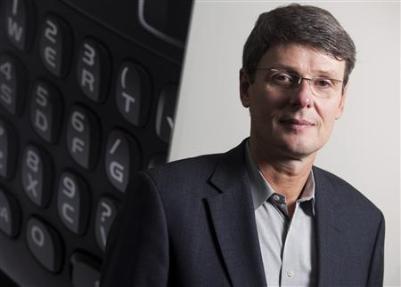
The dramatic management change at smartphone maker RIM (Research in Motion) is an act of desperation.
Between July and September of 2011, Gartner estimates RIM's market share via the Blackberry (BB) range slipped to 11 per cent from 15.4 per cent a year earlier.
RIM's Playbook has also failed to make an impact in the tablet market.
For Rediff Realtime News, clik here
...
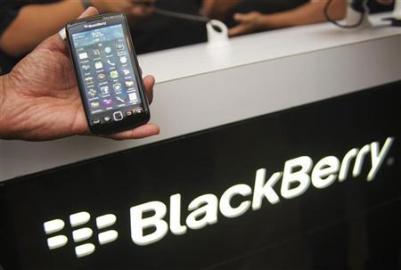
Unsurprisingly, the company's share price has declined by 75 per cent in the last 12 months.
It appears consumers are developing a preference for products from Apple and Nokia, as well as those from manufacturers like Samsung which use the open Android platform.
RIM's business customers, in particular, have also been spooked by a massive server outage.
...
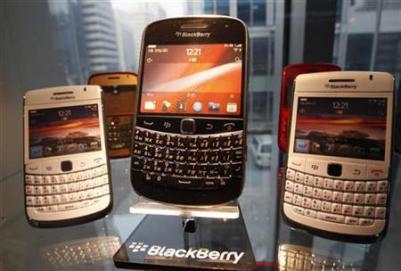
Developers say that the long-delayed BB10 operating system has a difficult programming interface and new RIM products may lag in offering useful independent applications.
BB's "killer apps" were its encrypted push-mail technology and its messenger service. Neither feature is a novelty any more.
The market seems to feel that other smartphones are more flexible and intuitive, less stressful for the eyes and fingers, and better at both the passive browsing that is Web 1.0, and the social networking that defines Web 2.0.
...
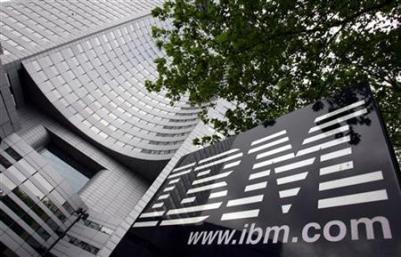
A turnaround for the ex-market leader continues to be theoretically possible. But history is against it.
Few companies have retained market leadership through successive technology cycles.
(Intel is perhaps one exception.) The inability to leverage leadership from one tech cycle to the next is a subject much discussed in business schools, because it is unusual in other industries.
IBM lost its overwhelming dominance when mainframe computing gave way to the PC in the 1980s.
...

In turn, Microsoft was unable to "port" its dominance of the PC era to the networking era, when upstarts like Google took over.
Nokia has failed so far to convert its high market share in vanilla handsets to the smartphone and tablet markets.
It remains to be seen who will be the ultimate winners in the current cycle, where Web 2.0 social networking applications are being integrated with high-speed mobile access.
...
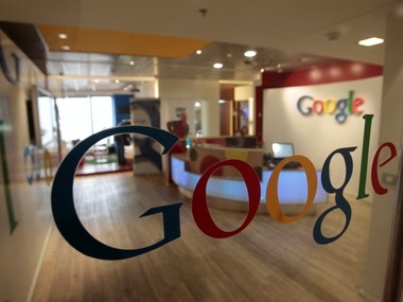
Google was the undisputed Web 1.0 leader due to its domination of search, and by extension, advertising. That dominance still ensures strong continuing cash-flows.
But Google's huge presence in Web 2.0 hasn't yet translated into commensurate revenues.
The acquisitions of YouTube, Orkut and Blogger have yet to be successfully monetised. Its Android platform now has over 50 per cent market share, but Google's revenues from Android are relatively minuscule.
...
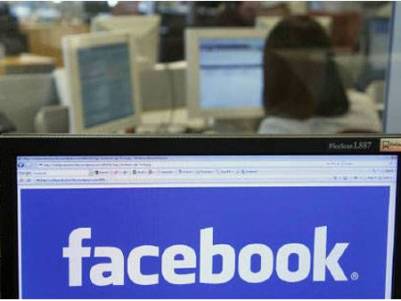
Facebook (FB) is currently the market leader in Web 2.0. Though FB is loss-making, Orkut, Google Wave and Google+ haven't enough traction to offer a realistic challenge.
Another market leader is Twitter, which has very high revenue growth and no apparent micro-blogging rival.
The most popular cloud application provider is probably Dropbox, which allows users to seamlessly synch content across various devices.
...

The unlisted Twitter, FB and Dropbox have all seen rising valuations, even as the valuation of the listed RIM has dipped.
But leadership in IT-related fields is heavily dependent on the ability to stay ahead of the technology curve.
Few companies evolve quickly enough and innovate consistently enough to retain leadership for meaningful periods.